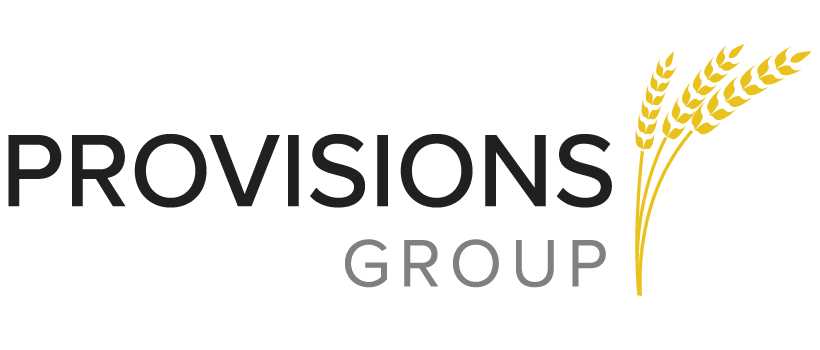End-to-end IT solutions for healthcare organizations.

12 Examples of Workplace HIPAA Violations
The Health Insurance Portability and Accountability Act (HIPAA) was established in 1996 to protect the privacy of individuals' health information. It has since become arguably the most widely recognized law in healthcare, but many employers are still unaware that their workplace may be a potential source for HIPAA violations.
Here are 12 common examples of HIPAA violations in the workplace and what you can do to prevent them from occurring. By understanding these common mistakes, you'll keep your business compliant with federal regulations and ensure your employees' confidential data is safe and secure.
What is a HIPAA violation in the workplace?
A HIPAA violation in the workplace is any action taken by an employer or employee that results in the improper disclosure of a person's protected health information (PHI). This includes accessing, using, disclosing, or selling PHI without authorization. As healthcare technologies such as EMRs and EHRs become more and more advanced, failing to provide adequate security measures to protect PHI from unauthorized access can also be considered a HIPAA violation. Violations of HIPAA can result in costly civil and criminal penalties for employers and individuals.
12 examples of common HIPAA violations in the workplace
According to the HIPAA Journal, there were over 380,000,000 healthcare records breached between October 2009 and December 2022. This equates to more than 1.2 times the population of the United States! If you're an employer or employee dealing with sensitive health information, it's crucial to be aware of the common HIPAA violations in the workplace. Common HIPAA violations in the workplace include:
- Unauthorized access: Looking up a patient’s information without proper consent or authorization from the patient or their representative.
- Disclosure of PHI without authorization: Sharing a person's medical records with someone who does not have permission to view them.
- Lack of security measures: Failing to implement adequate security measures, such as encryption and password protection, which could lead to unauthorized access of confidential health data.
- Discarding records inappropriately: Disposing of paper records containing PHI in trash cans (instead of shredding them properly).
- Using weak passwords: Reusing passwords for multiple accounts or using weak passwords that can be easily guessed by hackers, leading to unauthorized access and/or disclosure of PHI data.
- Improper storage of digital data on portable devices or network drives: Storing digital files containing PHI on portable devices like USB drives or network drives without first encrypting them.
- Sending unsecured emails with protected health information: Emailing unencrypted emails that contain sensitive health information about patients with inadequate email security measures in place.
- Lack of employee training on HIPAA regulations: Not providing employees with comprehensive training on HIPAA Privacy and Security Rules.
- Sharing authentication credentials: Allowing employees to share authentication credentials, such as passwords or PIN numbers, that can be used to access patient information.
- Insufficient physical safeguards: Not having appropriate physical security measures in place, such as locks and cameras.
- Failing to create and follow policies for disclosing information: Not having a clear process for disclosing PHI when required by law or requested by authorized individuals.
- Failing to monitor access to records: Not regularly monitoring who is accessing PHI or what type of information is being accessed.
Do any of these common mistakes sound familiar? If so, it's important to take steps now to ensure your workplace is compliant with HIPAA regulations. Otherwise, you may be subject to costly penalties. Take the time to review and update your policies and procedures as needed in order to protect yourself, your employees, and most importantly – the patients whose data you are responsible for protecting.
What to do if you discover a HIPAA violation in the workplace?
If you or an employee discovers a HIPAA violation in your workplace, you should report it immediately to your supervisor or HR representative. They will then launch an investigation to determine the severity of the violation and take appropriate action. Depending on the nature of the violation, steps may include notifying the affected individuals, implementing new policies and safeguards, or potentially facing civil or criminal penalties. It is crucial to take immediate action to rectify any violations to protect the privacy of the individual's health information and ensure compliance with federal regulations. For more on keeping your workplace HIPAA compliant, click here to download our free HIPAA compliance checklist and guide.
HIPAA best practices for business associates
Business associates are entities that create, receive, maintain, or transmit protected health information. As such, business associates must comply with the HIPAA Security Rule and develop policies and procedures for securing PHI. Business associates should take the following steps to ensure that their organization is compliant with HIPAA regulations:
- Develop and communicate clear procedures for handling, storing, and transmitting PHI.
- Train employees on privacy and security guidelines.
- Establish access control and encryption guidelines
- Create secure passwords for accessing PHI
- Implement a comprehensive risk management strategy to identify and address potential vulnerabilities.
- Regularly monitor systems for any unauthorized access or breaches of PHI data.
- Have a clear process for potential breaches
Common FAQs about HIPAA violations
Who must follow HIPAA violations?
All organizations and individuals that handle protected health information (PHI) are required to follow HIPAA regulations. This includes but is not limited to physicians, hospitals, clinics, insurance companies, and other healthcare providers who process or store PHI.
What is the cost of violating HIPAA laws?
Violating HIPAA laws can have severe consequences for businesses, including civil and criminal penalties that range from $100 to $1.5 million. Civil penalties can range from $100 to $50,000 per violation, while criminal penalties can result in up to 10 years in prison and fines of up to $250,000 for individuals and $1.5 million for organizations.
According to the HIPAA Journal, the average HIPAA penalty in 2022 was $96,688. In addition to the financial penalties, businesses may also face reputation damage and loss of trust from patients and employees, which can have lasting effects on the success and sustainability of the organization.
How do I conduct a HIPAA risk assessment?
Conducting a HIPAA risk assessment is crucial for identifying any vulnerabilities that could lead to a violation of HIPAA regulations. Start by analyzing all systems, devices, and networks used to process or store PHI data, including any third-party vendors that may have access to the information. This includes conducting a comprehensive review of all policies and procedures that govern the handling of PHI, as well as physical and technical safeguards in place to protect the confidentiality, integrity, and availability of the data. If you detect any vulnerabilities, take immediate action to resolve the issues and continuously monitor and reassess your systems to ensure ongoing compliance with HIPAA regulations.
HIPAA regulation audits can be conducted independently or by a third-party organization, such as a qualified security assessor (QSA). These organizations will help identify any potential threats or weaknesses in your systems and suggest effective measures to protect the data. Learn how Provisions Group can provide healthcare operators full-scale assistance that brings ease of use to your systems.
__________________________________________________________________
Download a FREE HIPAA compliance checklist to help keep you and your organization safe.
__________________________________________________________________


